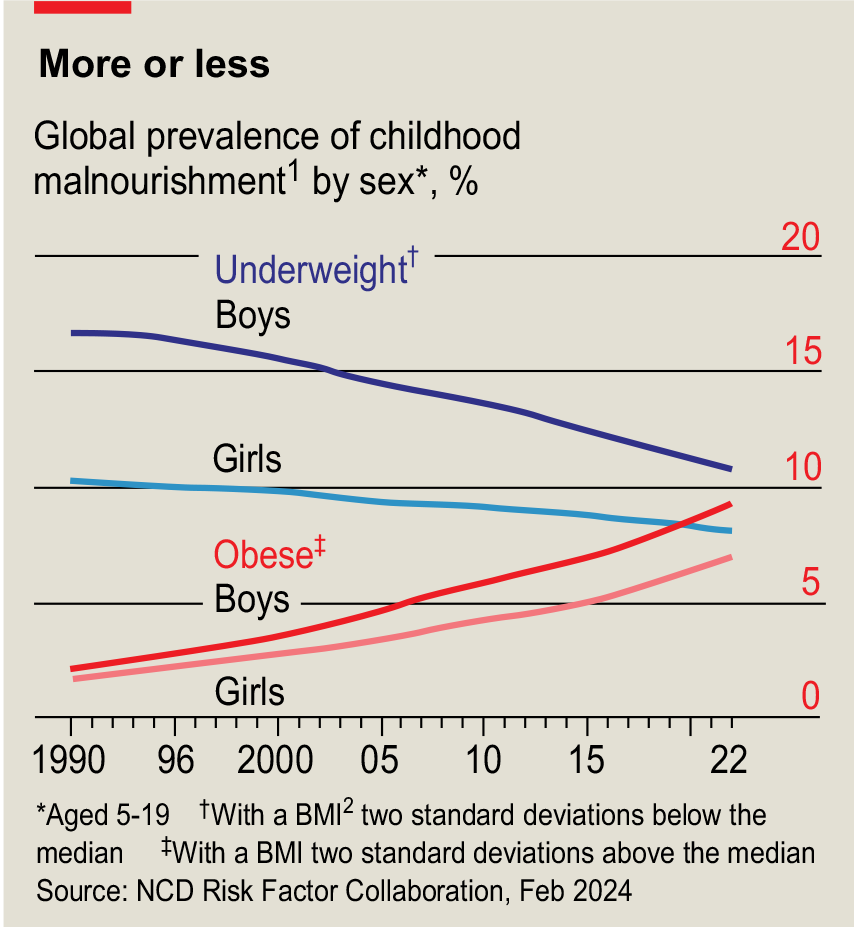Fique por dentro das novidades
Inscreva-se em nossa newsletter para receber atualizações sobre novas resoluções, dicas de estudo e informações que vão fazer a diferença na sua preparação!
Questão ativa
Já visualizadas
Não visualizadas
Resolução pendente
Questão anulada
Sem alternativas

Obesity is one of the world’s most serious public-health crises. It increases the risks of developing diabetes, heart disease, stroke and some cancers. Since 1990 global rates have doubled among adults and quadrupled among children. More than 1 billion people, including 7% of girls and 9% of boys, were classified as obese in the year 2022. In 2019 it led to around 5 million deaths. Obesity is no longer just a rich-world problem. Childhood rates are highest on the islands of the Pacific and the Caribbean, and rising fastest in developing countries such as Cambodia and Lesotho.

Most of the economic costs of obesity are faced by individuals, who take more time off work or miss more days of school, and are more likely to be low-paid or unemployed. Obese children are more often targets for bullies, too. But the burden on the state is also perceptible. In 2023, the Institute for Fiscal Studies estimated the annual costs of overweight and obese adults through health-care expenses, formal social care and inactivity at work as 1% of Britain’s GDP (Gross Domestic Product).
Although telling adults what to eat and when to move can be seen as interfering, governments should try to prevent children becoming obese and encourage their weight-loss efforts. Early interventions could obtain benefits later: children with obesity are five times more likely to be obese as adults than thinner ones. The trouble is, nobody knows how best to go about it. No country has ever managed to reduce obesity; the more successful ones have merely restrained it. The problem is too complex to be solved by simple public-health measures or obesity drugs alone. The hunt is on to find evidence for interventions that work together, and quickly.
(www.economist.com, 08.08.2024. Adaptado.)
¹malnourishment: nutrição deficiente devido à ingestão inadequada ou desbalanceada de nutrientes.
²BMI: body mass index (índice de massa corporal).
No trecho do terceiro parágrafo “Early interventions could obtain benefits later”, o termo sublinhado pode ser substituído, sem alteração de sentido, por:
would.
may.
will.
must.
shall.
O termo "could" pode ser substituído por "may", pois ambos indicam possibilidade.
Inscreva-se em nossa newsletter para receber atualizações sobre novas resoluções, dicas de estudo e informações que vão fazer a diferença na sua preparação!